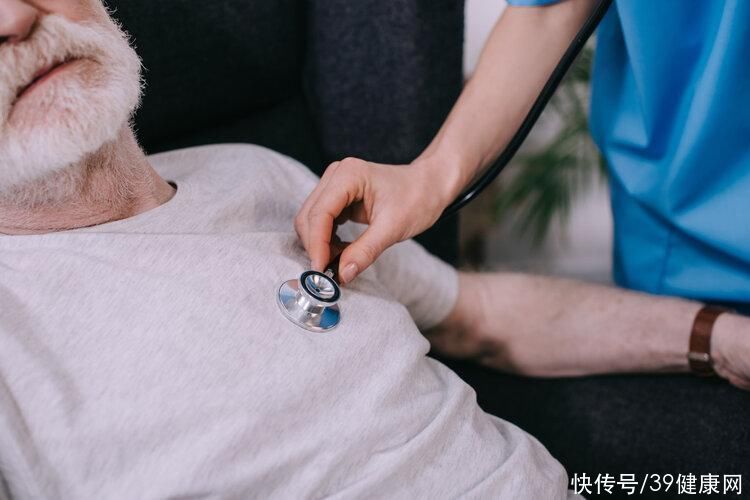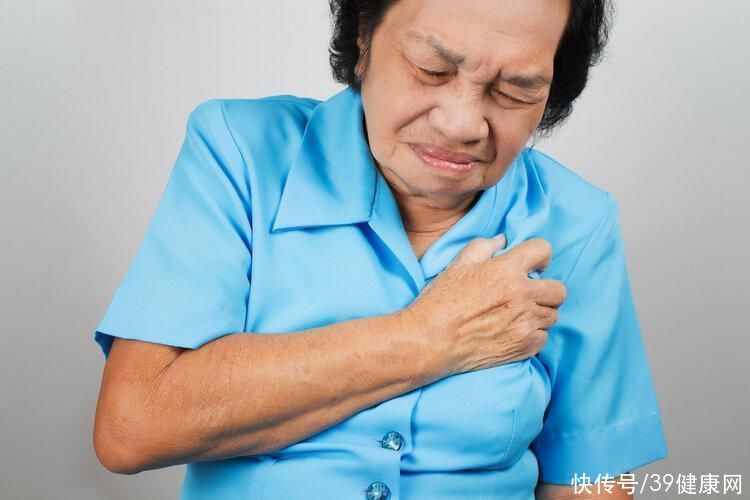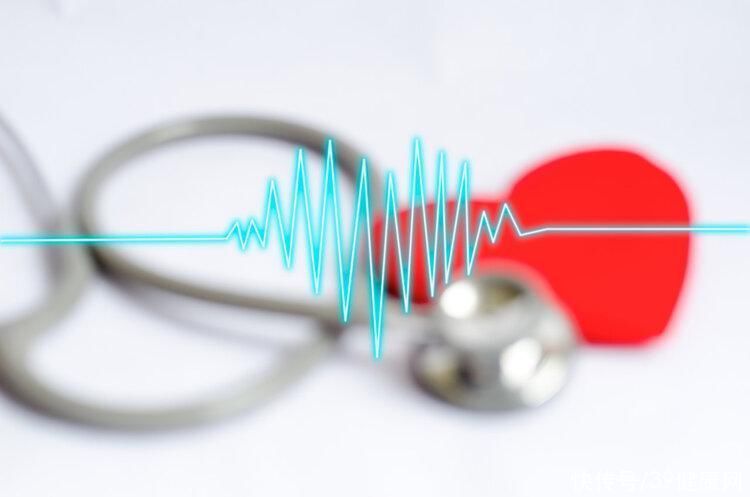Some time ago, Uncle Wang, who was in his 80s, fainted at home and was rushed to the hospital.
It turns out that Uncle Wang suffers from high blood pressure. Before, he occasionally had abnormal symptoms such as dizziness and dark eyes, but it would return to normal after a short rest, so he never let it go. on the heart.
And it’s not the first time that Uncle Wang has fainted. The same thing happened last time. The doctor told him that it was severe bradycardia and suggested a pacemaker. It’s just that when Uncle Wang heard that he was going to have surgery and money, he was not happy, and he was going to be discharged from the hospital. He also told his family that the reason why the tortoise lived a long life was because of its slow heartbeat, and it was a good thing for him to have a slow heartbeat.
Unexpectedly, the same situation happened again. This time, Uncle Wang finally agreed to implant a pacemaker, and finally escaped.

I. Is the heart rate related to longevity?
In fact, heart rate does correlate with longevity. But is “the slower the heartbeat, the longer the longevity” really reliable? There is indeed more rigorous data to support this statement.
The person who first verified that a fast heart rate can shorten life expectancy is Wen Qibang, a professor at China Medical University. He collected 2 million health check-up data and found that the heart rate of a healthy general population is approximately At 60 beats/min,When heart rate reaches 60-70 beats/min, each increase in heart rate may reduce life expectancy by about 4 months.
In addition,people with a heart rate of 70-80 bpm versus those with a heart rate below 60 bpm In comparison, life expectancy may also be 3 years shorter.
In general, when the heart rate exceeds 100 beats per minute at rest, it is considered a rapid heart rate. Rapid heartbeat can cause physical discomfort in mild cases, and damage coronary arteries in severe cases, and even lead to critical situations such as myocardial ischemia and acute myocardial infarction.
As the saying goes, “A person’s heart beats 2.5 billion times in one’s life, and whoever finishes the first will walk first.” >There is a certain reason that people with slow heartbeats live longer, but it is too absolute to evaluate the length of life from the heart rate alone, and it is not good if the heartbeat is too fast or too slow.

2. For a 60-year-old, the heart rate is 55 times a minute. Is it normal?
Both rapid heartbeat and slow heartbeat belong to arrhythmia, and arrhythmia is a very common cardiovascular disease.
Especially for the elderly, older age is more likely to develop bradycardia< span>. People with slower heartbeats live longer. A 60-year-old person has a heartbeat of 55 times a minute. Is it normal?
Huang Xiaobo, a physician at the Southern Hospital of Southern Medical University, pointed out that the normal heartbeat is 60-100 beats/min, and if it is lower than 60 beats/min, it is considered to be slow. But slow heartbeat doesn’t necessarily mean unhealthy.
The speed of the heartbeat is related to many factors, including family inheritance, exercise, physical fitness, etc. However, it should also be noted that if the heartbeat is slow to a certain level, it is easy to lack blood supply to the brain, causing symptoms such as chest tightness, fatigue, dizziness, etc., it will cause health risks and should be intervened as soon as possible.
Patients with bradycardia are prone to dark eyes, fatigue, and even fainting and loss of consciousness in severe cases.
Guo Yifang, vice president of Hebei Provincial People’s Hospital, also pointed out that most studies believe that heartbeats of 50-80 beats per minute are the healthiest, and that less than 50 beats per minute is considered a heartbeat. too slow. Slow heartbeat may lead to insufficient blood supply to important organs such as the heart, resulting in hidden dangers of disease.

3. “The heart is beating like a deer”, it may be sickness not love
When describing the rapid heartbeat of love at first sight, we used to use “heart beating like a deer”. However, heartbeat rhythm disorders, in addition to love at first sight, the most common are premature beats and atrial fibrillation.
1. Premature beats
Premature beats, also known as intermittent, refer to cardiac Jumped once, and paused longer than normal.
Premature beats do not necessarily mean that there is a problem with the heart. Sometimes they are too nervous, overtired, or smoking, drinking, drinking coffee, etc., which can also cause premature beats.
Most of the premature beats are benign and will not lead to serious consequences.A small number of premature beats may be related to coronary heart disease and valvular disease. , cardiomyopathy and other heart diseases. Therefore, if a premature beat occurs, do not take it lightly, it is recommended to go to the hospital for examination, mainly to find the cause.

2, atrial fibrillation
Atrial fibrillation is a heartbeat disorder in the atrium. It is common in the elderly. Data shows that about 10% of the elderly over the age of 75 will have atrial fibrillation, and about 20% of the elderly over the age of 75 will have atrial fibrillation An 80-year-old man presented with atrial fibrillation.
Atrial fibrillation is specifically manifested asfatigue, palpitation, restlessness, etc., self-feeling heart beating No rhythm. After measurement, it was found that the heartbeat frequency exceeded the normal range, reaching more than 100 beats per minute.
Atrial fibrillation occurs and should be intervened as soon as possible, otherwise the atrium does not contract for a long time, which may lead to continuous blood pooling and Blood clots, which increase the risk of stroke.

Fourth, do 3 points to stabilize the heartbeat
If the heartbeat is too fast or too slow, then what can be done to stabilize the heartbeat? Adhere to the following points:
1. Regular exercise
Regular exercise and moderate intensity can be Exercising heart function, studies have found that if you exercise for more than 3 months, you can reduce the heart rate by 4-5 minutes/time. It is recommended to stick to walking, swimming, Tai Chi and other sports.
The heart rate during exercise is equal to 170-age. For a frail and older person, exercise heart rate=(170-age)×0.9.
2. Healthy Habits
Develop a healthy lifestyle, quit smoking and limit alcohol, Don’t stay up late, drink less strong tea, avoid constipation, etc. Maintain an appropriate weight by exercising and eating right.

3. Self-monitoring
Learn to self-monitor your heartbeat to see if your heartbeat is within the normal range. There are three locations where heart rate is often measured: radial artery, carotid artery, and dorsal foot artery. You can use an electronic sphygmomanometer or watch, clock, and generally test for more than 30 seconds to 60 seconds.
The Cardiovascular Channel of the medical community also shared a method of roughly self-testing heart function by walking: on a flat area, measure the maximum distance walked in 6 minutes.
The walking distance of healthy people is more than 450 meters, 450-375 meters is cardiac function class II, 375-300 is cardiac function class III, and less than 300 meters is cardiac function class IV . Suitable for elderly people with stable disease, of courseThis does not represent a specialist diagnosis.
The speed of the heartbeat will affect health and longevity. We should have a concept of the normal heartbeat range, and we should know whether the heartbeat is too fast or too slow. They are all red flags. We should be vigilant, seek medical attention in time if we feel unwell, and protect our hearts.

References
[1] “Heart rate affects life expectancy ! Doctor: Heart rate is the best in this range”. Popular Science China. 2022-02-24
[2] “Is the heart good? Please accept these “cheats” for self-assessment”. Cardiovascular Channel of the Medical Community. 2022-07-18
[3] “Unexplained syncope may be bradycardia, heart rate below 50 per minute Second be careful! “. Nanfang Hospital of Southern Medical University. 2022-07-23
Reprinting is prohibited without the author’s permission